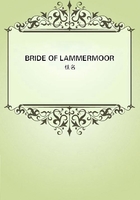
第3章
Nick did Baldoon's posterior right deride, And, as first substitute, did seize the bride;Whate'er he to his mistress did or said, He threw the bridegroom from the nuptial bed, Into the chimney did so his rival maul, His bruised bones ne'er were cured but by the fall.
One of the marginal notes ascribed to William Dunlop applies to the above lines. "She had betrothed herself to Lord Rutherfoord under horrid imprecations, and afterwards married Baldoon, his nevoy, and her mother was the cause of her breach of faith."The same tragedy is alluded to in the following couplet and note:
What train of curses that base brood pursues, When the young nephew weds old uncle's spouse.
The note on the word "uncle" explains it as meaning "Rutherfoord, who should have married the Lady Baldoon, was Baldoon's uncle." The poetry of this satire on Lord Stair and his family was, as already noticed, written by Sir William Hamilton of Whitelaw, a rival of Lord Stair for the situation of President of the Court of Session; a person much inferior to that great lawyer in talents, and equally ill-treated by the calumny or just satire of his contemporaries as an unjust and partial judge. Some of the notes are by that curious and laborious antiquary, Robert Milne, who, as a virulent Jacobite, willingly lent a hand to blacken the family of Stair.
Another poet of the period, with a very different purpose, has left an elegy, in which he darkly hints at and bemoans the fate of the ill-starred young person, whose very uncommon calamity Whitelaw, Dunlop, and Milne thought a fitting subject for buffoonery and ribaldry. This bard of milder mood was Andrew Symson, before the Revolution minister of Kirkinner, in Galloway, and after his expulsion as an Episcopalian following the humble occupation of a printer in Edinburgh. He furnished the family of Baldoon, with which he appears to have been intimate, with an elegy on the tragic event in their family. In this piece he treats the mournful occasion of the bride's death with mysterious solemnity.
The verses bear this title, "On the unexpected death of the virtuous Lady Mrs. Janet Dalrymple, Lady Baldoon, younger," and afford us the precise dates of the catastrophe, which could not otherwise have been easily ascertained. "Nupta August 12.
Domum Ducta August 24. Obiit September 12. Sepult. September 30, 1669." The form of the elegy is a dialogue betwixt a passenger and a domestic servant. The first, recollecting that he had passed that way lately, and seen all around enlivened by the appearances of mirth and festivity, is desirous to know what had changed so gay a scene into mourning. We preserve the reply of the servant as a specimen of Mr. Symson's verses, which are not of the first quality:
Sir, 'tis truth you've told.
We did enjoy great mirth; but now, ah me!
Our joyful song's turn'd to an elegie.
A virtuous lady, not long since a bride, Was to a hopeful plant by marriage tied, And brought home hither. We did all rejoice, Even for her sake. But presently our voice Was turn'd to mourning for that little time That she'd enjoy: she waned in her prime, For Atropus, with her impartial knife, Soon cut her thread, and therewithal her life;And for the time we may it well remember, It being in unfortunate September;. . .
Where we must leave her till the resurrection.
'Tis then the Saints enjoy their full perfection.
Mr. Symson also poured forth his elegiac strains upon the fate of the widowed bridegroom, on which subject, after a long and querulous effusion, the poet arrives at the sound conclusion, that if Baldoon had walked on foot, which it seems was his general custom, he would have escaped perishing by a fall from horseback. As the work in which it occurs is so scarce as almost to be unique, and as it gives us the most full account of one of the actors in this tragic tale which we have rehearsed, we will, at the risk of being tedious, insert some short specimens of Mr.
Symson's composition. It is entitled:
"A Funeral Elegie, occasioned by the sad and much lamented death of that worthily respected, and very much accomplished gentleman, David Dunbar, younger, of Baldoon, only son and apparent heir to the right worshipful Sir David Dunbar of Baldoon, Knight Baronet. He departed this life on March 28, 1682, having received a bruise by a fall, as he was riding the day preceding betwixt Leith and Holyrood House; and was honourably interred in the Abbey Church of Holyrood House, on April 4, 1682."Men might, and very justly too, conclude Me guilty of the worst ingratitude, Should I be silent, or should I forbear At this sad accident to shed a tear;A tear! said I? ah! that's a petit thing, A very lean, slight, slender offering, Too mean, I'm sure, for me, wherewith t'attend The unexpected funeral of my friend:
A glass of briny tears charged up to th' brim.
Would be too few for me to shed for him.